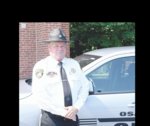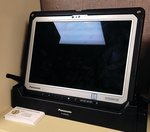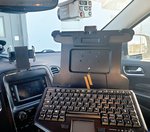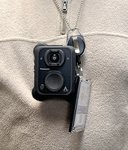Osage County Sheriff Mike Bonham has been appointed by Gov. Mike Parson to serve on the five-member Missouri Sheriff Methamphetamine Relief Taskforce (MoSMART), which was established in 2005 to …
This item is available in full to subscribers.
We have recently launched a new and improved website. To continue reading, you will need to either log into your subscriber account, or purchase a new subscription.
If you are a current print subscriber, you can set up a free website account by clicking here.
Otherwise, click here to view your options for subscribing.
Please log in to continue |
|





Osage County Sheriff Mike Bonham has been appointed by Gov. Mike Parson to serve on the five-member Missouri Sheriff Methamphetamine Relief Taskforce (MoSMART), which was established in 2005 to administer grants to battle meth-related crimes across the state.
“It is very humbling to be asked to serve on this commission,” said Bonham. “My goal is to focus on small counties for various grants. We want it to be fairly spread between larger and smaller counties because this fight against meth impacts all of us.”
Bonham added the methamphetamine environment has changed, particularly in rural counties. “We used to see low-level meth cooks running around on back roads using shake-and-bake methods but things are much different now.”
One of the reasons for the change is the fact the state has cracked down on the purchase of precursor materials, making it more difficult for smaller operators to function.
Osage County’s top drug problem is marijuana, Bonham noted, but with decriminalization efforts underway and changes in how offenders are prosecuted, meth remains the most difficult challenge.
“We’re seeing a greater influx of meth from outside the county,” said Bonham. “We’re making inroads in our investigations and we know the majority of meth is coming from Kansas City and St. Louis, through Columbia and Jefferson City to the west, and from Gasconade County to the east.”
Among the grants available to law enforcement is the Deputy Sheriff Salary Supplementation Fund (DSSSF), which MoSMART has administered for the last 10 years.
Bonham said DSSSF helps keep deputies on the road, which in turn means a greater likelihood that concerted efforts will yield drug-related arrests and prosecutions.
“It’s not just here,” said Bonham. “The more deputies we have on the road to curtail the flow of meth in bigger jurisdictions, the less impact it will have here in Osage County.”
As the northern-most sheriff on MoSMART, Bonham said he plans to fight hard for central Missouri. Also appointed to the commission are Sheriff Jim C. Arnott of Greene County, Sheriff Randee M. Kaiser, Jasper County, and Sheriff Katy McCutcheon, Madison County. One two-year seat remains open.
“I’ve known and worked with these sheriffs for a while and we have a lot of respect for one another,” said Bonham. “I believe we’ll have a good collaboration.”
Bonham is already a member of the Lincoln University Police Academy board at what is the first historically black college and university (HBCU) campus in the country to offer police training.
Appointed by Chief Gary Hill at Lincoln University, Bonham said he is proud to be a part of this historic undertaking.
“The university has done a great job of setting this up and I’m looking forward to offering whatever help I can provide,” said Bonham. “A lot of alumni have been involved and it’s exciting to see the progress.”
This board has not yet met, but Bonham said he has been asked to serve as an adjunct professor teaching law enforcement at Lincoln.
Bonham has also been informed he is up for an appointment to the Missouri Emergency Response Commission (MERC), created to protect public health and the environment by assisting communities with chemical incident prevention, preparedness, response, and recovery; and by receiving, processing, and reporting on chemical information received under the community right-to-know laws.
“I have a lot of experience with hazardous materials so this would be a good fit,” said Bonham.
If selected with Senatorial consent, Bonham would be one of six appointed members on the 14-member board and would serve four years.
Overall, Bonham is very pleased with the way things are going, both with his appointments as well as in his department.
“One of the goals I had, when I set about to become sheriff, was to have deputies living in communities around the county,” said Bonham. “I want our deputies to be in their communities getting to know people and letting people get to know them. It’s all part of my community policing philosophy.”
At this time, Bonham and a deputy live in Freeburg, while another lives at Bonnots Mill, one resides at Chamois, one deputy lives at Belle, and another calls Loose Creek home.
“As we further our technological advances, where deputies live and are located in general will come more into play,” said Bonham.
The use of an Automatic Vehicle Locator (AVL) will be a great tool and has been installed in cruisers. With the AVL, software can track a vehicle’s location, speed, etc., and relay that information to Bonham, who has made the process available to Osage County 911 and the Missouri State Highway Patrol.
“If a vehicle exceeds a certain speed, that tells me I need to find out why,” said Bonham. “If there’s a pursuit, I need to know what’s going on.”
Deputy safety is also a concern, and AVL will allow Bonham and other agencies to keep tabs on officers. “If we know an officer is en route to a location and doesn’t show up there, or if we lose radio contact, we will be able to respond appropriately,” said Bonham. “This system is difficult to disable which means it’s hard to circumvent, and that keeps a deputy’s last known location safe.”
Vehicle maintenance will also be more easily tracked for routine updates and fuel usage.
Cameras are also in all vehicles and deputies wear body-cams, which make interactions more reliable. “Cameras exonerate far more people than it convicts,” said Bonham. “This is a great tool to keep everyone honest.”
Bonham has been awarded a grant totaling $6,623.37 from the Central District of Missouri's Blueprint Coalition for Safer Roadways for electronic ticket-writing to support the move away from traffic citation booklets. Deputies will be able to register violations online, and the offender's copy is immediately printed in the patrol car. The grant will pay for a computer, printer, and other electronic equipment.
“I’m very happy to get this grant,” said Bonham. “Deputies can spend more time on the street and less time in the office writing reports with this system. Eventually, we hope to have enhancements that will allow us to have individuals digitally sign a summons at the scene.”
Bonham added that other grants have been awarded, all of which have the same goal in mind.
“We’re here to serve and protect the public, and having the right tools in the bag makes that job a lot easier and safer,” he said.